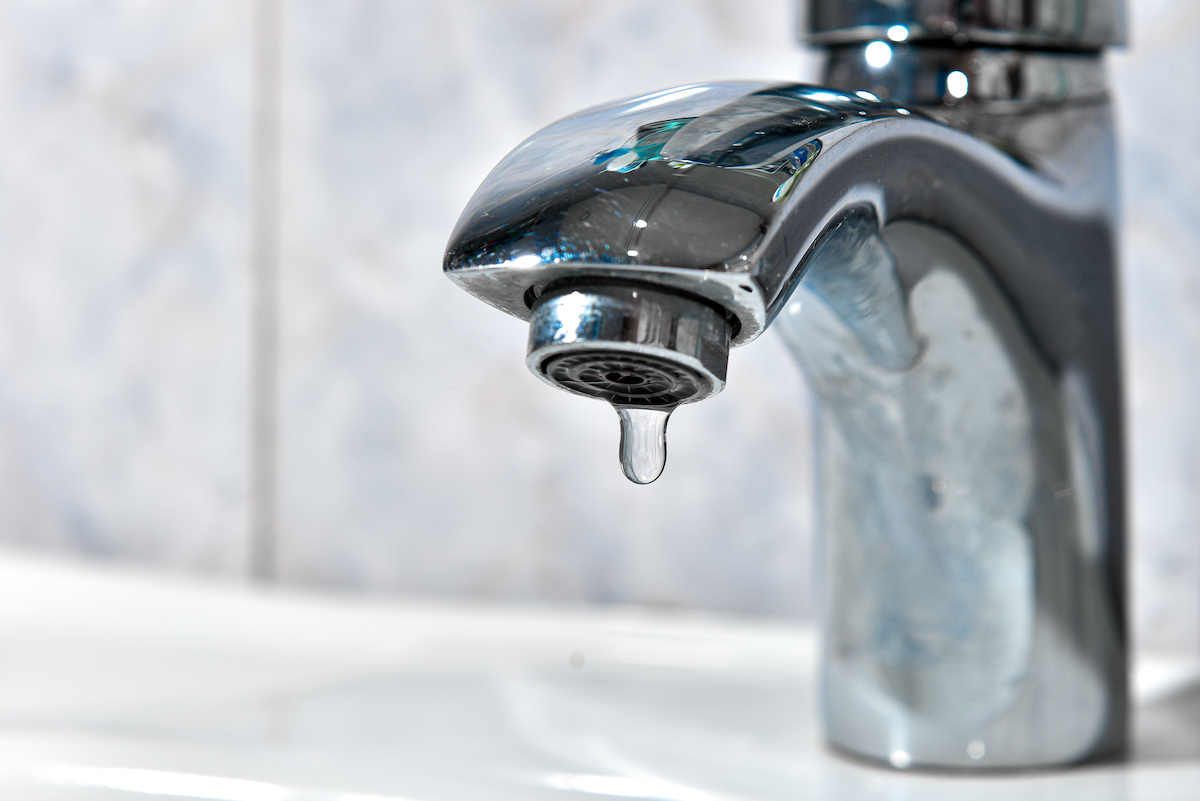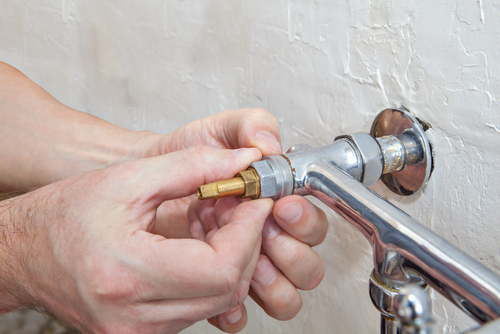Are you currently hunting for resources concerning What Causes Leaky Faucets & How To Fix Them?

Leaking taps might feel like a minor trouble, yet their impact exceeds just the annoyance of the noise. From drainage to incurring unnecessary financial expenses and health dangers, ignoring a leaking tap can bring about different effects. In this short article, we'll look into why it's essential to address this typical family concern immediately and efficiently.
Wastage of Water
Environmental Impact
Dripping faucets add considerably to water wastage. According to the Environmental Protection Agency (EPA), a solitary tap leaking at one drip per second can throw away greater than 3,000 gallons of water annually. This not only pressures water sources yet additionally impacts environments and wildlife dependent on them.
Step-by-Step Overview to Taking Care Of a Dripping Tap
Devices Required
Prior to attempting to fix a dripping tap, gather the necessary devices, including an adjustable wrench, screwdrivers, substitute parts (such as washers or cartridges), and plumber's tape.
Usual Faucet Issues and Their Solutions
Determine the type of faucet and the specific issue creating the drip. Usual issues include damaged washers, corroded valve seats, or faulty O-rings. Refer to maker directions or on the internet tutorials for detailed guidance on repairs.
Financial Prices
Boosted Water Costs
Beyond the environmental influence, leaking taps can pump up water bills considerably. The collected wastage over time converts into greater utility expenses, which can have been stayed clear of with prompt fixings.
Possible Residential Or Commercial Property Damage
Additionally, prolonged trickling can cause harm to fixtures and surfaces bordering the faucet. Water buildup can cause discoloration, rust, and even architectural concerns if left ignored, resulting in additional fixing expenses.
Health Concerns
Mold And Mildew and Mildew Development
The continuous visibility of moisture from a trickling faucet produces an optimal environment for mold and mildew and mold growth. These fungis not only jeopardize interior air high quality however also present health dangers, particularly for people with respiratory problems or allergies.
Waterborne Illness
Stationary water in dripping taps can become a breeding ground for microorganisms and other microorganisms, enhancing the threat of waterborne conditions. Contaminants such as Legionella bacteria prosper in stationary water, possibly resulting in major health problems when consumed or inhaled.
DIY vs. Expert Fixing
Pros and Cons of DIY Repair
While some might try to take care of a leaking tap themselves, do it yourself fixings feature their very own set of challenges. Without proper knowledge and devices, DIY attempts can exacerbate the problem or cause incomplete repair services, extending the problem.
Benefits of Hiring a Specialist Plumber
Employing a specialist plumber guarantees that the underlying root cause of the dripping faucet is resolved successfully. Plumbings have the competence and tools to diagnose and fix tap problems efficiently, saving time and decreasing the risk of additional damage.
Ecological Responsibility
Private Payment to Preservation
Taking duty for repairing leaking taps straightens with more comprehensive efforts toward water conservation and environmental sustainability. Every person's activities jointly make a significant impact on preserving valuable sources.
Lasting Living Practices
By focusing on timely repair services and taking on water-saving behaviors, individuals add to lasting living methods that benefit both existing and future generations.
Safety nets
Routine Upkeep Tips
To avoid dripping taps, do routine maintenance such as cleaning aerators, inspecting for leakages, and changing damaged parts promptly. In addition, think about setting up water-saving devices or upgrading to a lot more efficient components.
Value of Prompt Repair Works
Addressing leaking faucets as quickly as they're observed stops further water wastefulness and potential damage, inevitably saving both water and cash in the future.
Influence On Residential Or Commercial Property Value
Perception of Well-Maintained Property
Keeping a building in good condition, including addressing upkeep issues like leaking faucets, improves its viewed value and charm amongst prospective buyers or renters.
Impact on Resale Worth
Features with well-kept plumbing fixtures, including taps, command greater resale values in the property market. Resolving trickling taps can add to a positive impression throughout property assessments and settlements.
Conclusion
Resolving a leaking faucet surpasses simple convenience; it's a crucial action toward saving water, decreasing economic costs, and guarding health and wellness and home. Whether via DIY repair services or specialist assistance, doing something about it to take care of dripping taps is a tiny yet impactful way to promote accountable stewardship of sources and contribute to a much healthier, more lasting future.
How to Fix a Leaky Faucet: Step-by-Step Repair Guide
A leaky faucet may seem like a simple annoyance, but if it's not fixed promptly, that leak could cost hundreds to potentially thousands. From water damage to mold, mildew, and high water bills, even a tiny leak can be catastrophic if left unattended. Damage like this can even affect the overall value of your home, so it's important to take the right approach for leaky faucet repair. You may need the help of a plumber in some cases, but we've got a few tips you can try on how to fix a leaky faucet before calling the pros.
Four Faucet Types
When you're learning how to fix a leaky faucet, the first step is knowing what kind of faucet you're working with! There are four common types.
Cartridge Faucets
Cartridge faucets come in one- or two-handled varieties. In one-handled cartridge faucets, hot and cold water combines in a single cartridge. In the two-handled versions, hot and cold water are controlled separately and mixed in the faucet.
Ball Faucets
Ball faucets have a single lever you push up and down to adjust the pressure and rotate to change the temperature. A slotted metal ball controls the amount of water allowed into the spout.
Compression Washer Faucets
They're the oldest type of faucet, but they're still used in many homes — especially older ones. Compression faucets have two separate handles that, when turned, raise or lower the washer that seals a water valve. This valve stops water from flowing through the faucet when it is turned off.
Disc Faucets
Disc faucets rarely need to be repaired due to their maintenance-free design. The water flow is controlled by two discs — the upper one raises and lowers against a fixed lower disc, creating a watertight seal. If your disc faucet starts leaking, you may need to replace the seals or clean residue buildup from the inlets.
Fixing a Leaky Faucet
Step 1: Turn Off the Water
Whether you're learning how to fix a leaky bathtub faucet or how to fix a leaky kitchen faucet, always turn off the water supply to your working area when you're fixing a leak. The last thing you want is a flood added to your list of things to fix.
Look for the shutoff valves below your sink or around the tub and turn them clockwise to stop the water flow. If your faucet doesn't have shutoff valves, you may need to turn off the water for the whole house. Check to make sure it's off by turning the faucet on. If nothing comes out, you're ready to start the repair.
Step 2: Take Apart the Faucet
How you disassemble your faucet depends on the type of fixture you have. You can use a flathead screwdriver to remove the caps on top of the handle or handles for cartridge and compression faucets. Inside, you should see handle screws. Unscrew these with a screwdriver to remove the handle.
Disc- and ball-style faucets will typically have an inlet screw near the handle, and removing that will reveal the interior of the faucet.
Detach the Valve Stem
For cartridge- and compression-style faucets, you'll see the inner valve stem or cartridge once you remove the faucet handles. If you have a compression faucet, unscrew the brass valve stem. If you have a cartridge faucet, pull out the cartridge. If your cartridge has been in place for a while, it may require some tools or extra force to remove it due to mineral deposits.
Examine and Replace Parts
Once you've removed the parts, check them out to confirm what needs to be replaced. You may see corroded rubber washers, O-rings, stems, or cartridges. On a ball-style faucet, check the seats and springs for damage.
If you need to repair a leaky disc faucet, check the inlet and seals on the lower disc.
Once you determine what parts must be replaced, visit your local hardware store. Bring the damaged parts with you to ensure you can purchase the correct components to replace them.
Clean Valves and Faucet Cavity
If you've removed a stem or cartridge, you may notice mineral buildup in the faucet's threads. Use white vinegar to clean the valve seat by soaking it for a few minutes, then scrub it away with a soft toothbrush and rinse with warm water. You can also clean the interior of the faucet in the same way.
Reassemble the Faucet
Once your faucet is cleaned and the required parts have been replaced, it's time to reassemble it. Put the pieces back together and slowly turn the water supply back on. Doing this slowly is crucial because too much initial water pressure can damage the new hardware you've just installed.
https://homewarranty.firstam.com/blog/how-to-fix-leaky-faucet

Do you really like reading up on Why Is It Important To Fix Your Leaking Tap/Faucet?? Try leaving feedback down below. We will be pleased to listen to your thoughts about this content. We hope that you visit us again in the near future. Enjoyed our entry? Please share it. Let somebody else check it out. Thank you for going through it.
Comments on “How It's Mandatory to Repair a Faulty Faucet”